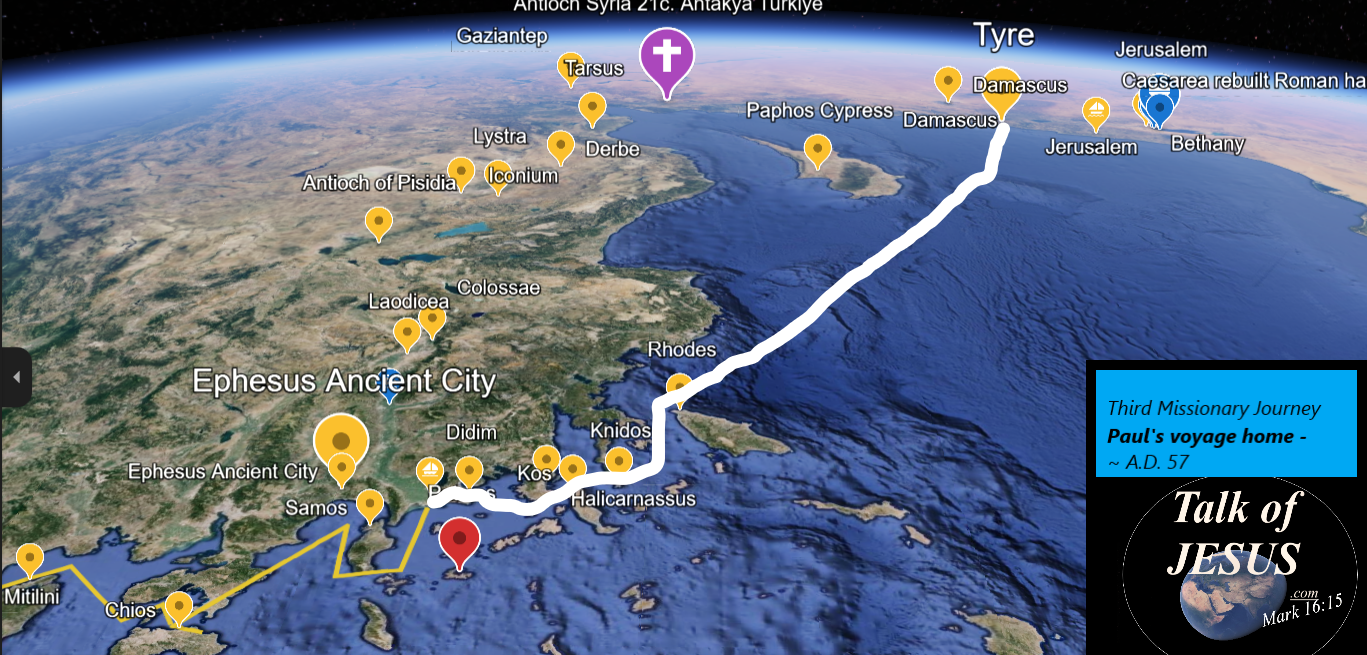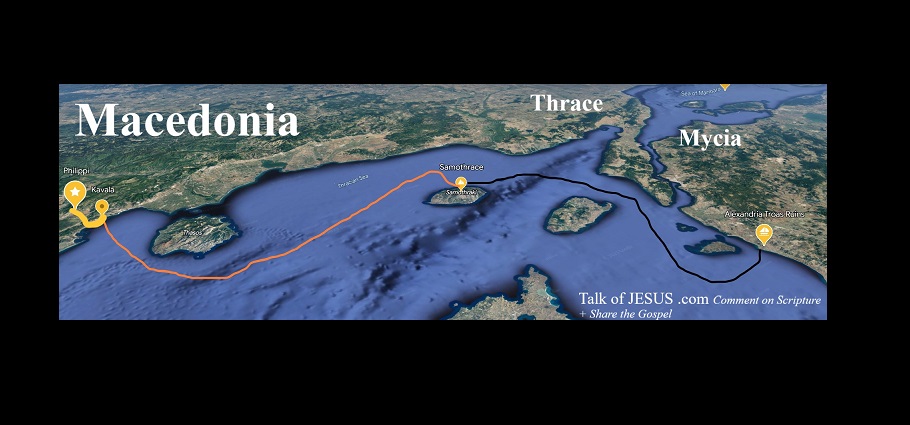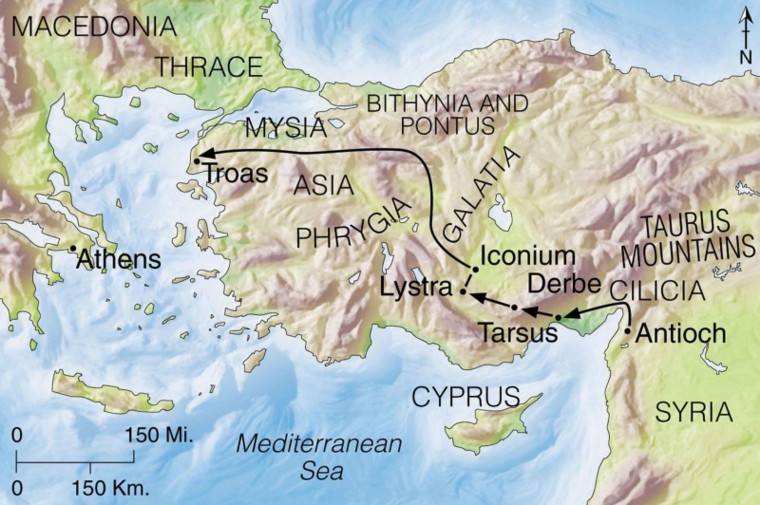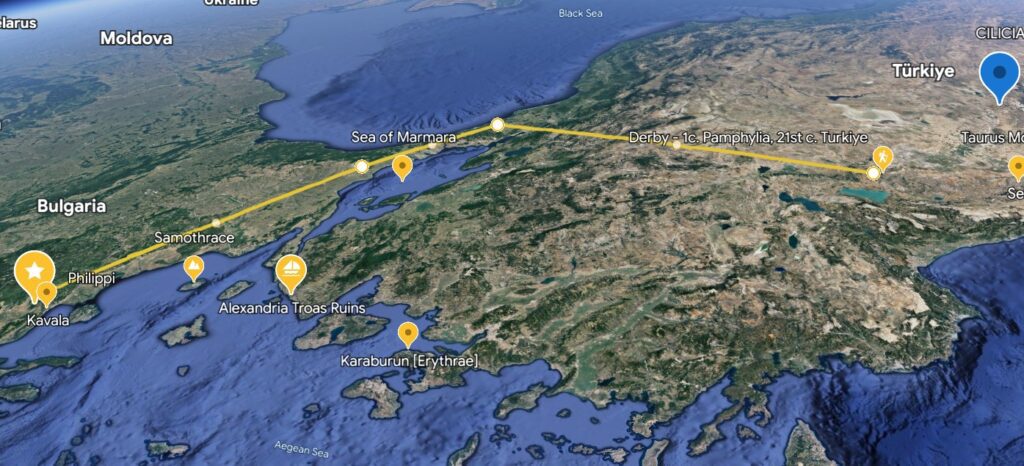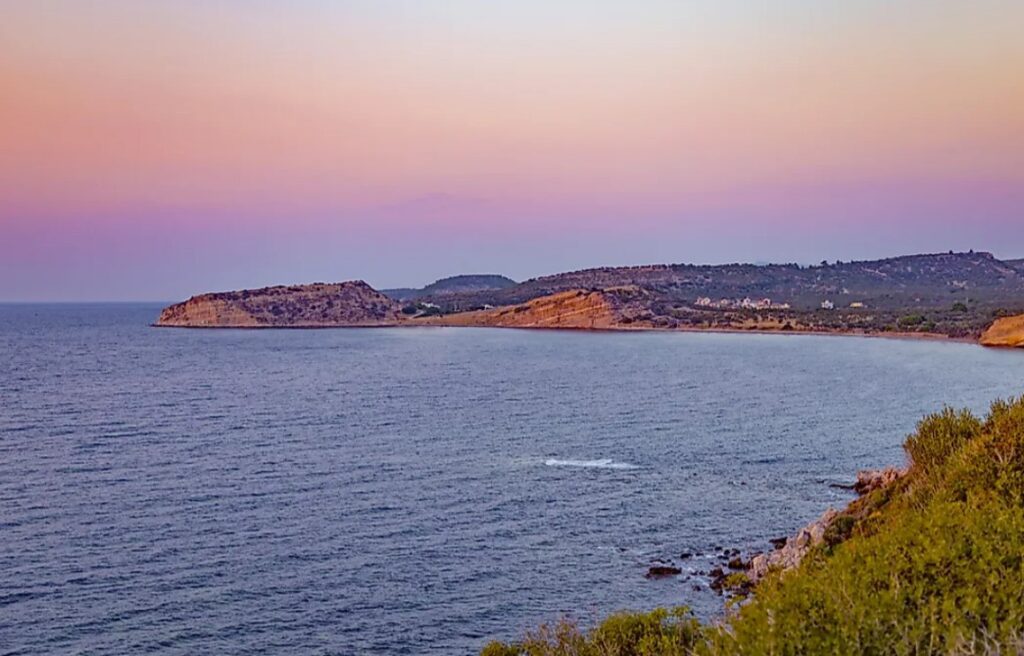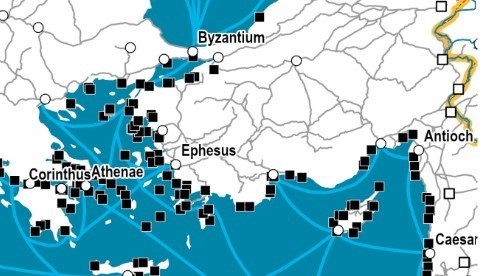And when they had come to him, he said to them,
Acts of the Apostles 20:18-19a LSB – The Apostle Paul bidding farewell to the Ephesian elders
“You yourselves know, from the first day that I set foot in Asia, how I was with you the whole time, serving the Lord with all humility and with tears and with trials..
As you know Paul and apostles of his third missionary journey have set sail for Jerusalem.

Reflecting back on a Third Missionary Journey
Paul had begun this third mission in about A.D. 52 setting out on land from Antioch to visit churches all along the Anatolian peninsula until reaching the Aegean at Ephesus, a distance of more than 500 miles.
A.D. 57
In addition to starting and nurturing an important church in Asia Minor, namely Ephesus, the Apostle had then crossed the Aegean into Europe and done the same for churches in Thessalonica, and Berea; the important Achaian city of Corinth, returning to Thessalonica once more then traveling to the Roman stronghold at Philippi.
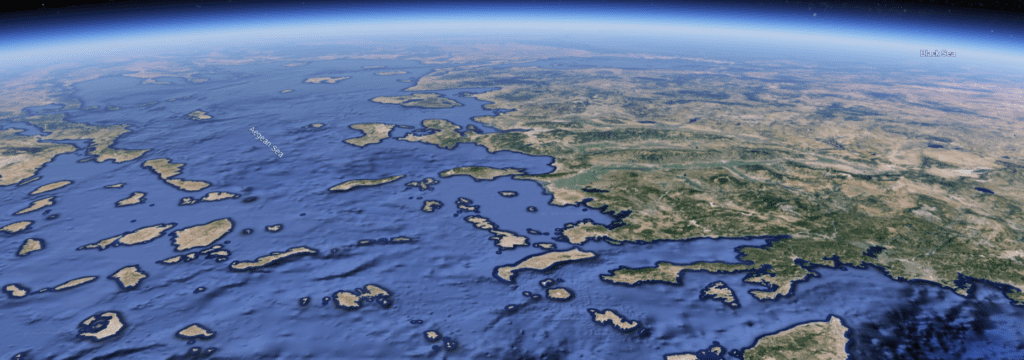
The Aegean Missions by Sea

Although these missionaries have bypassed Ephesus on their return to Jerusalem, note Paul’s APOSTOLOIC LETTERS encouraging CHURCHES during these same years:
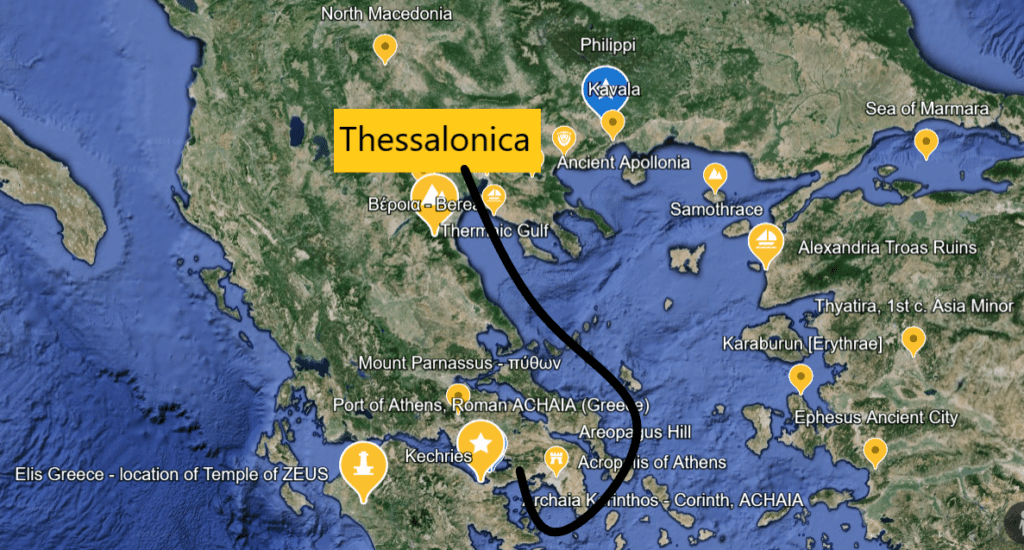
- 2 THESSALONIANS (possibly)
- (if it had not already been delivered during Paul’s Second Missionary Journey along with 1 Thessalonians and an epistle to the Galatians.)
- TWO LETTERS TO THE CORINTHIANS
- PAUL’S LETTERS TO THE ROMANS,
- including the major theological epistle preserved in the Bible
- and no doubt other letters to individuals in Rome as in other cities.
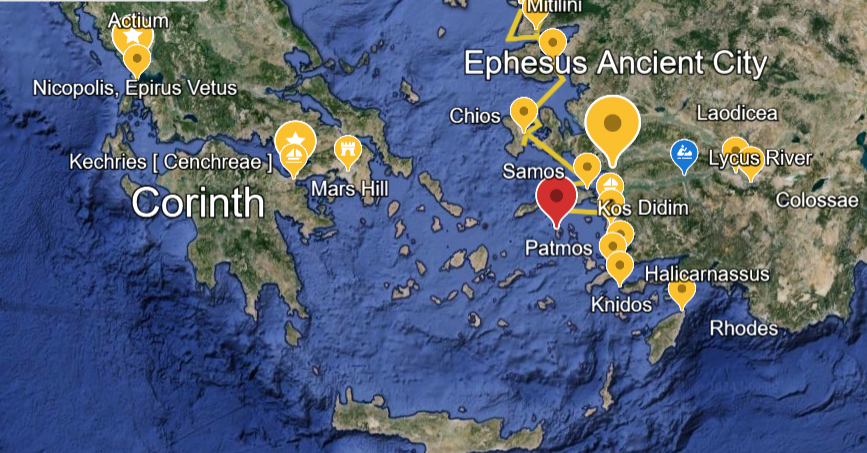
Acts of the Apostles 21:
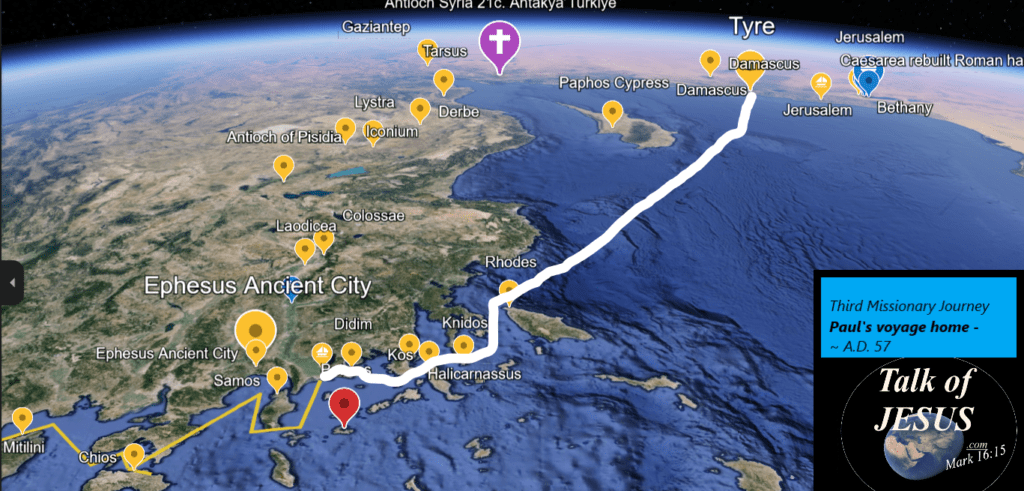
Now when we had parted from them and had set sail, we came by a straight course to Cos..
and the next day to Rhodes..
and from there to Patara;
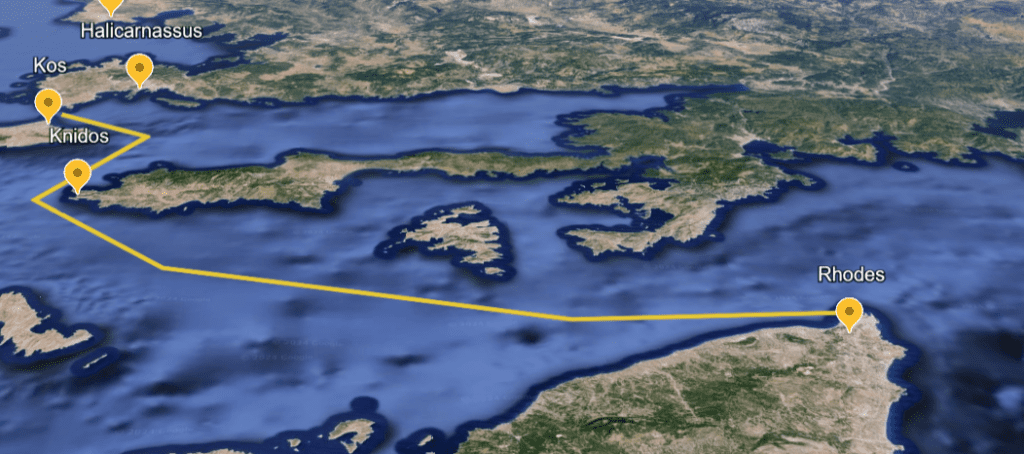
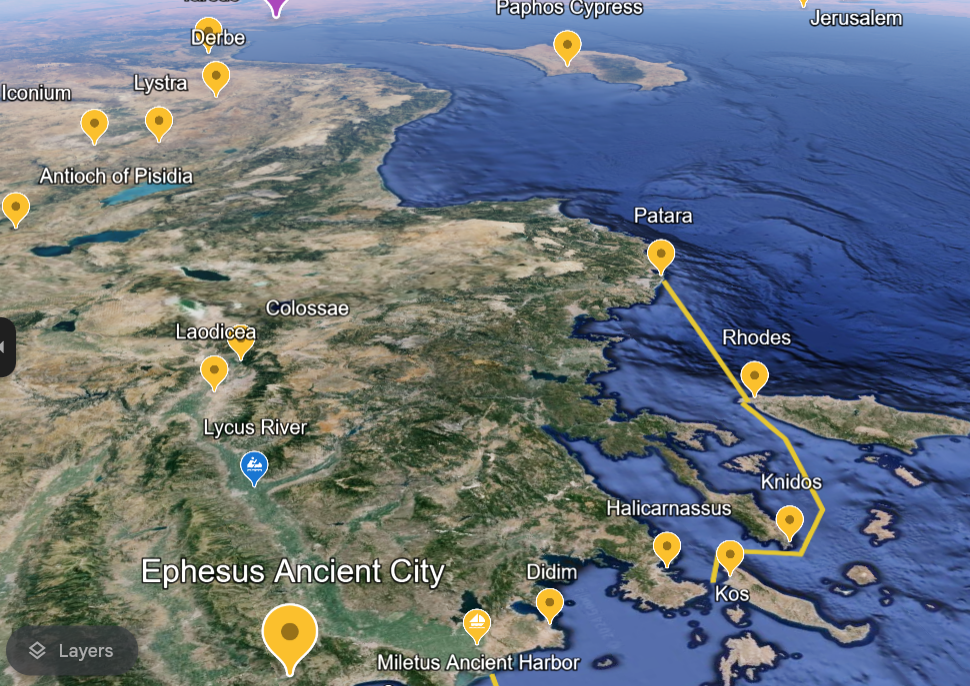
.. and having found a ship crossing over to Phoenicia, we went aboard and set sail.
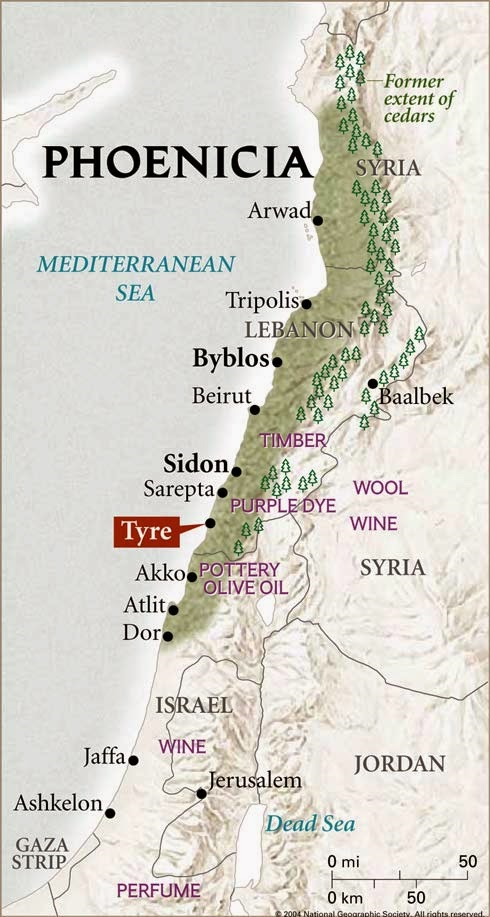
And when we came in sight of Cyprus, leaving it on the left, we kept sailing to Syria and landed at Tyre; for there the ship was to unload its cargo.
Land Ho! Almost Home
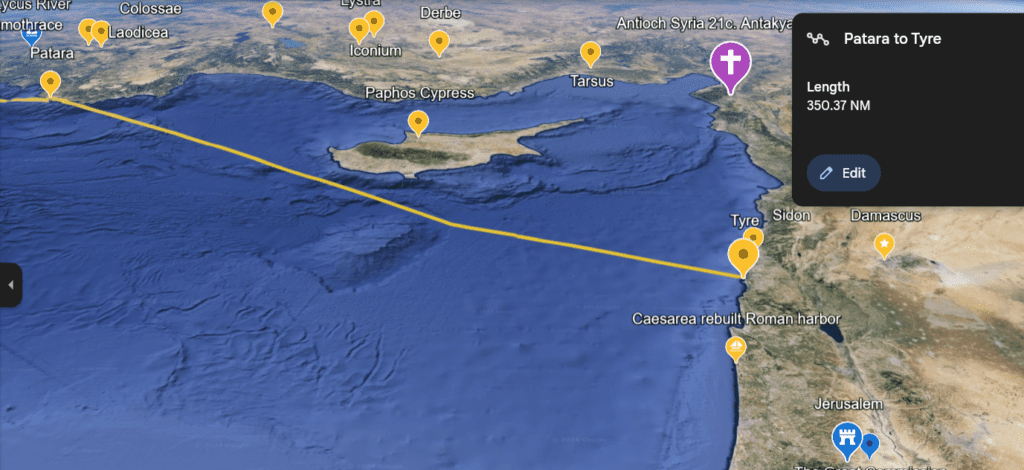
We sought out the disciples there and stayed with them seven days.
Through the Spirit they urged Paul not to go on to Jerusalem.
Acts of the Apostles 21:4 – New International Version
a word of warning
Note three things Luke is about to tell us about their arrival:
- μαθητής (mathētēs) – they sought out OTHER followers of Christ and stayed with them (seven days here in Tyre)
- disciples in every port AND on various parts of Paul’s missionary journeys various disciples become apostles also sent out to other churches.
- SEE the list: These disciples are both men and women.
- They spoke to Paul in the Spirit.
- λέγω – legō
- conversation between believers, exhortation in this case they must have thought received through the Spirit
- (We’ll come back to this..)
- πνεῦμα – pneuma
- Let Christ-followers reading ‘Spirit‘ 70 times in Acts understand that this is the Holy Spirit who joined in these conversations.
- λέγω – legō
- disciples Prophesied to Paul through the Spirit what would happen if the Apostle ‘set foot’ in Jerusalem (as he had planned).
- Soon other disciples will provide addition detail of these prophesies though the Spirit.
When it was time to leave, [Luke tells us] we left and continued on our way. All of them, including wives and children, accompanied us out of the city, and there on the beach we knelt to pray.
6 After saying goodbye to each other, we went aboard the ship, and they returned home.
Does the intimacy of their parting not remind us of the Ephesian elders as these apostles crossed the Aegean and Mediterranean?
διά – λόγος – [dia – log]
'dialogue' of 'Christians' -literally, dia logos, dia legō
- discourse
- to say, to speak
- through
- by the means of:
the HOLY SPIRIT or HOLY GHOST!
And fear came upon every soul; and many wonders and signs were taking place through the apostles.
“Of Him all the prophets bear witness that through His name everyone who believes in Him receives forgiveness of sins.”
“But we believe that we are saved through the grace of the Lord Jesus, in the same way as they also are.”
Acts of the Apostles 2:43, 10:43, 15:11,
references to Strong’s G1223 – dia – meaning “through“
DO NOT DISMISS or overlook frequent intimate conversation between 1st century followers of Christ AND their continual dialogue through the Holy Spirit.
Roger@TalkofJesus.com
The Apostle Paul has RECENTLY [A.D. 57] written in a letter to Roman Christ-followers:
.. the love of God has been poured out within our hearts through the Holy Spirit who was given to us.
Romans 5:5b excerpt [the context could not be more important]
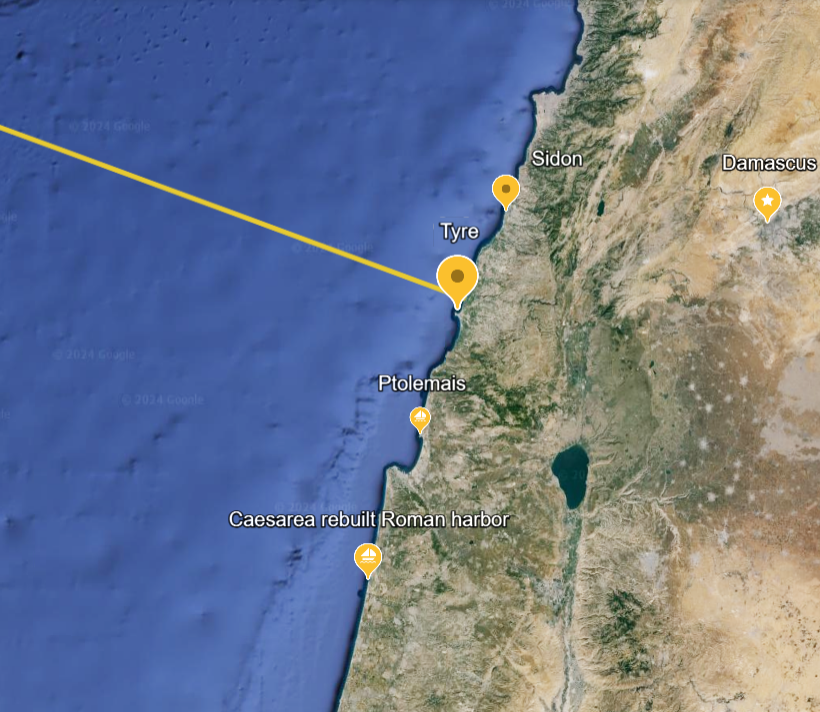
NEXT: The apostles continue their return from Paul’s Third Missionary Journey and the Holy Spirit reveals more details through prophesy of what will take place in Jerusalem.
Talk of JESUS . com
Let's have some dia-log here, dear brother/sister in Christ.
Comment on Scripture – Share the Gospel
